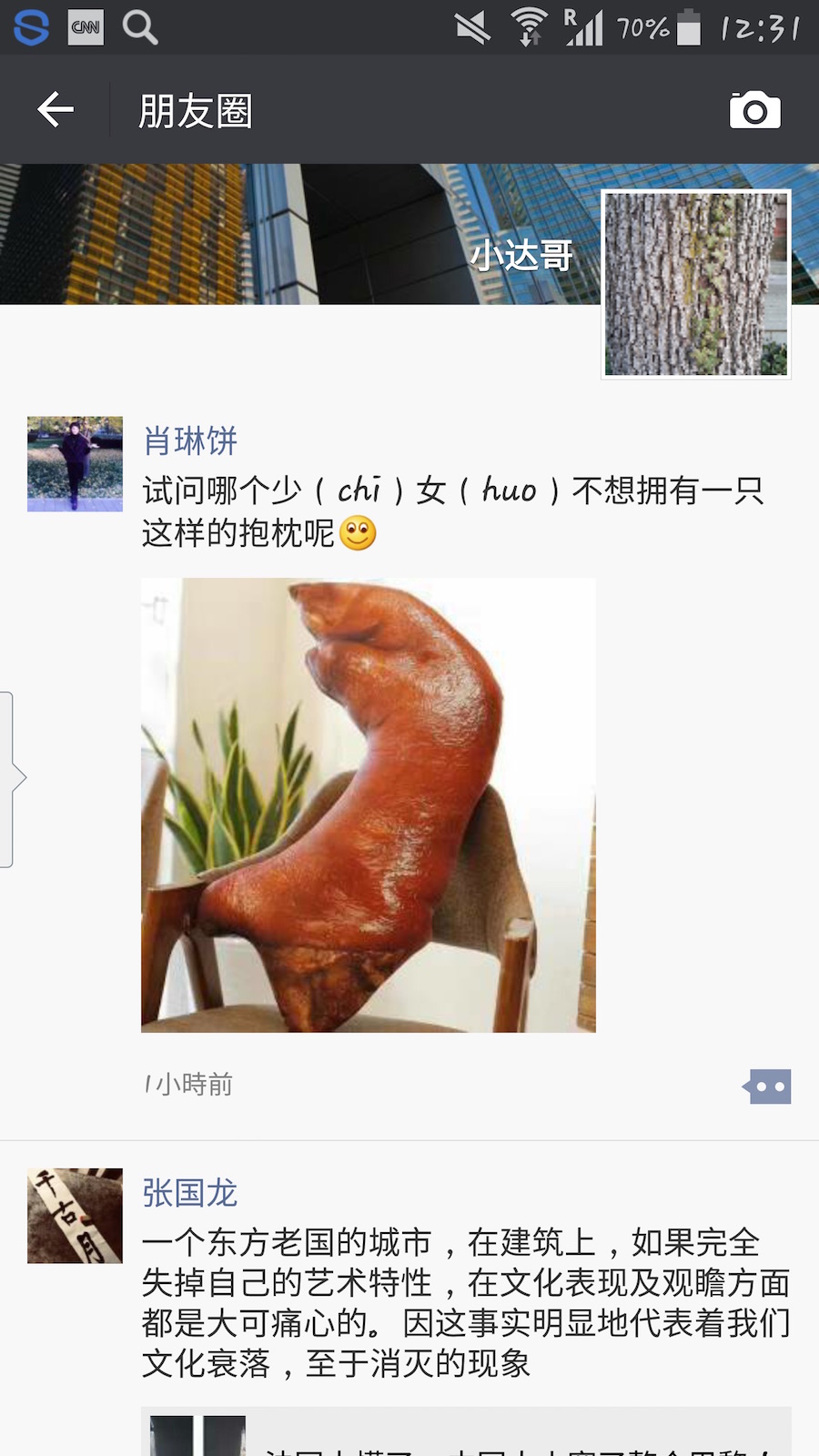Biscriptal juxtaposition in Chinese, part 4
« previous post | next post »
Screenshot from Nikita Kuzmin's WeChat:
The sentence ending in a smiley face, just above the huge broiled trotter (I think that's what it is) on a chair, reads thus:
Shìwèn nǎge shào(chi)nǚ(huo) bù xiǎng yǒngyǒu yī zhǐ zhèyàng de bàozhěn ne :-)
试问哪个少(chi)女(huo)不想拥有一只这样的抱枕呢:-
"Let me ask, 'Which foodie girl would not want to have a pillow / bolster like this?'":-)
It recent years, it has become very popular in internet language to combine two ideas into one term by glossing the individual syllables of a word in characters with the alternated syllables of another word in parenthetical pinyin. Thus, shào(chi)nǚ(huo) 少(chi)女(huo) = shàonǚ chīhuò 少女吃货 ("girl who is a foodie / chowhound")
We have examined this technique of lexical formation in several earlier posts:
- "Biscriptal juxtaposition in Chinese" (8/17/14)
- "Biscriptal juxtaposition in Chinese, part 2" (10/15/14)
- "Biscriptal juxtaposition in Chinese, part 3" (4/24/17)
Some other posts on related biscriptal usage:
- "A new way of 寫ing Mandarin" (1/13/08)
- "Zhao C: a Man Who Lost His Name" (2/27/09)
- "A New Morpheme in Mandarin" (4/26/11)
- "Creeping Romanization in Chinese" (8/30/12)
- "Character amnesia and the emergence of digraphia" (9/25/13)
- "Dumpling ingredients and character amnesia" (10/18/14)
- "Digraphia and intentional miswriting" (3/12/15)
- "A trilingual, biscriptal note (with emoji)" (2/5/17)
- "Impromptu biscriptalism on a Starbucks cup" (9/8/17)
- "Biscriptalism on Starbucks cups, part 2" (9/16/17)
- "Further evidence of mixed script writing in Chinese" (1/19/1*)
The script she is a-changin.

cliff arroyo said,
January 27, 2018 @ 5:45 am
Does the shift in script help people decode combinations that wouldn't otherwise be clear?
Could such interwined compounds work in spoken Chinese? I seem to remember Vietnamese doing something similar braiding compounds together but the details are fuzzy in my memory I should look up my Thompson again…
Xinchang Li said,
January 31, 2018 @ 11:56 pm
I remember, if I am not wrong, that one of the reasons of this bracket with pinyin thing first appeared was because some sensitive words might not be able to show on the internet. For example in this case, if it contains sensitive words, the sentence might be shown as "试问哪个**不想拥有一只这样的抱枕呢?" on the website. Especially during some special time, even some very common words might not be allowed to show on the internet. In order to convey the complete and original meaning, people started to use pinyin to indicate the true words they wanted to say but type another words in characters instead. For one thing the pinyin is used to unravel the truth under the words game, for another just to produce an ironic effect.